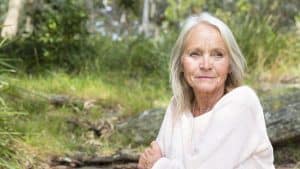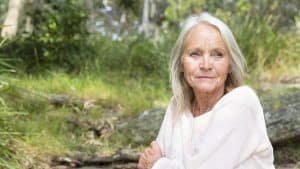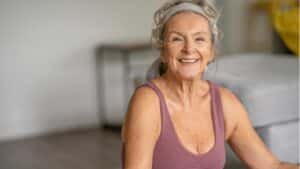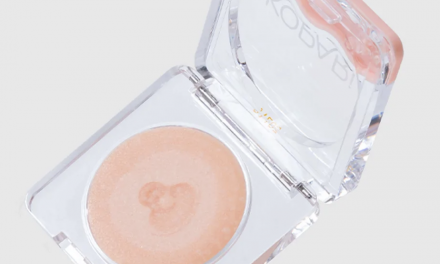
Women are worriers by nature. We worry about our families, our friends and our future. Those of us who live alone have learned to be independent – but that doesn’t stop us from worrying about the years ahead.
As a single small business owner who lives alone, I have spent a lot of time thinking about – and planning for – a potentially solo future. That process produced my book Retiring Solo, which addresses the many issues I considered once I realized that I could very well spend the next 30 years of my life on my own.
On the average, women live longer than men and many of us will spend up to a third of our adult lives living on our own through a combination of choice, divorce or death. It is practical to plan for growing old alone, even if you are happily partnered now.
Four Things That Worry Me About Growing Old Alone
As a single woman, my two greatest fears in life are outliving my money or my ability to earn money to support myself, and losing my health or mobility and becoming dependent on other people or institutions for care. I worry more about the second one than the first. Why? Because I believe that for as long as I remain healthy, I should be able to find a way to earn some income.
I also worry about whether I will die alone, without a supportive circle of friends and family. Recently, I also began thinking about what I would like to be remembered for once I’m gone.
Will I Outlive My Money?
No one wants to outlive their resources. If you’re healthy and active, you could be looking at three decades of retirement, with no guarantee of how far your funds will stretch. How many years of money will you need? At what pace should you spend what you have managed to put away? There really is no way to know for sure.
Will there be enough money to travel? Will there be enough money if you become ill or need extended care and, if not, then where will that money come from?
Retirement may also prove to be costlier than planned for. Many women report that they underestimated the costs of food, taxes and healthcare and found that expenses in the early years of retirement proved to be much higher than they’d expected.
Single women face even greater pressure. There is no spouse or partner to help contribute to retirement savings, bring home a second paycheck or receive a second Social Security or pension check in the mail.
A part-time job or income from starting a business can relieve financial pressure and help fund activities and travel. Continuing to work also helps us remain active, involved and engaged. That’s good for our mental and physical health, all the way around.
Will I Stay Healthy?
I am very much a quality versus quantity type of person – especially when it comes to quality of life. I believe in living healthier, not just longer. I became committed to better health for the first time when I turned 50. I ate better, exercised more, became an avid hiker and started playing pickle ball and other sports. I have never felt healthier.
Yet these questions still plague me: Will my health hold out as I get older? Who will take care of me if I do get sick? Can I afford to get sick? (Can anyone afford to get sick?)
It quickly becomes clear that the best strategy for anyone is to get – and stay – as healthy as possible, starting as soon as possible. Realizing this often leads to remodeling lifestyles and eating habits. Fear has always been a great motivator.
Start walking, join a fitness or nutrition program, exercise with friends. Staying healthy and active is the best way to remain independent as you get older.
Will I Die Alone?
The idea of living with others in some sort of shared housing arrangement becomes more appealing to me with each year – not just for its social aspects, but also for the peace of mind that would come from knowing others would be nearby to help in the event of a medical emergency or illness.
A strong social network also relieves stress, helps us recover from illness faster and can lead to a longer, happier life. People who have meaningful connections and relationships in their lives also tend to be more active and are often healthier.
We all need people nearby to offer advice or support, provide social interaction, get us out of the house and push us to try new things. We also want to know that we have someone we can call on in a crisis or a medical emergency, or when we need a ride, a helping hand or a shoulder to cry on.
Think about the many ways that you can create a support circle in your life. You likely know lots of people who are looking for the same thing. Community is good for mind, body and spirt. It keeps us happy, engaged and active. Ageing alone, without some sense of community in our lives, does not.
What Will I Be Remembered For?
We like to know that we made a difference, that someone cares about us and that they will miss us once we are gone.
As we get older, we also think more about the type of legacy that we will leave behind. It could be a project or accomplishment that leaves the world, our community or someone’s life in a better state than we found it, or something that we create or build that will continue producing benefits long after we are gone.
I am very much focused on creating some kind of legacy that will benefit others and outlive me. I want to make a difference. I like to think that we all do.
Are you looking to create something that will outlast you? Think about what inspires you and how you can offer that inspiration to others. Whether we are solo or partnered, the legacies that we create represent our last opportunity to leave the world a little better than we found it.
Face Your Fears and Embrace Life
Living a full and happy life as we grow older is about planning and choices. It is about planning for financial independence. It is about choosing whether to continue working and, if so, for how long. It is about choosing to create the support circle that we all need. It is about choosing to protect our health, so that we don’t have to fight to regain it in the future.
Do you ever worry about growing older alone? What have you done to relieve your fears? Do you have a support circle in place? Do you see being single as a strength or a liability in your 60s? Please join the conversation.





